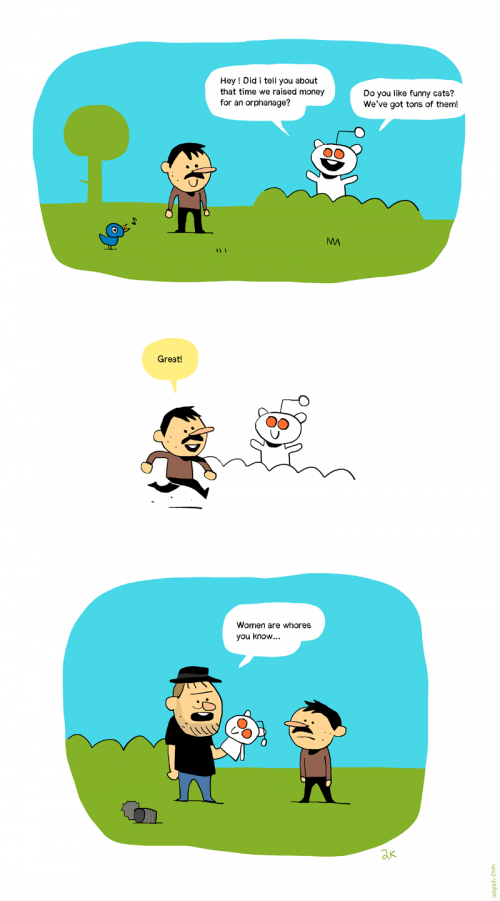Rebecca Watson has a very good summary of her SXSW panel on Reddit. Reddit has an introspection problem (they don’t) and a criticism problem (they don’t accept it, even when they have a serious problem that needs correcting).
The panel then moved on to discussing where Reddit came from, how it differed from other forums and communities, and how its features have impacted both the internal community and the outside world.
On that last point, I talked a bit about how I think that Reddit’s shared values of “freedom of speech” and anonymity combine with the “karma” voting system to create an ideal environment for the proliferation and normalization of bigotry and hate. I showed screenshots that I grabbed from just the previous few days of posts on r/ShitRedditSays, with credit given and a brief detour for us to talk about whether the existence of a self-critical subreddit like SRS is cause for hope (my answer being “no,” because SRS is popularly seen by other Redditors not as a helpful part of Reddit but as a hateful, misguided, humorless, and occasionally dangerous outside threat, an idea that supports my forthcoming point that Redditors hate and resist criticism). I pointed out that the karma system resulted in bigoted ideas being not just tolerated but rewarded, sometimes by people thinking they were being edgy and ironic and sometimes by actual hate groups like Stormfront, a racist forum that encourages users to game Reddit so that their ideology is represented prominently.
Free speech is a good thing except when you fetishize it to such a degree that it gets elevated well above personal responsibility.
Also, I think the majority of Reddit users are basically good people; their success at promoting great causes (which Rebecca talks about) is testimony to that. However, by refusing to address reasonable limits on what ought to be said, they’ve privileged a tiny minority of trolls and wreckers and parasites who love to rampage and ruin the site’s reputation for others…and management vacillates over doing anything about it, because they seem to think they need to worship the 4chan version of ‘free speech’.
Seriously: does encouraging the existence of a “jailbait” forum that tramples over the civil rights of the targets of their surreptitious photography represent a net increase in civil liberty, or a net decrease? If that’s what you care about, this ideal of personal freedom, then handing it to abusers at the expense of the innocent is not advancing your goals at all. Unless your goal is just making cheap porn and trampling on women.
A nice illustration of the problem:



